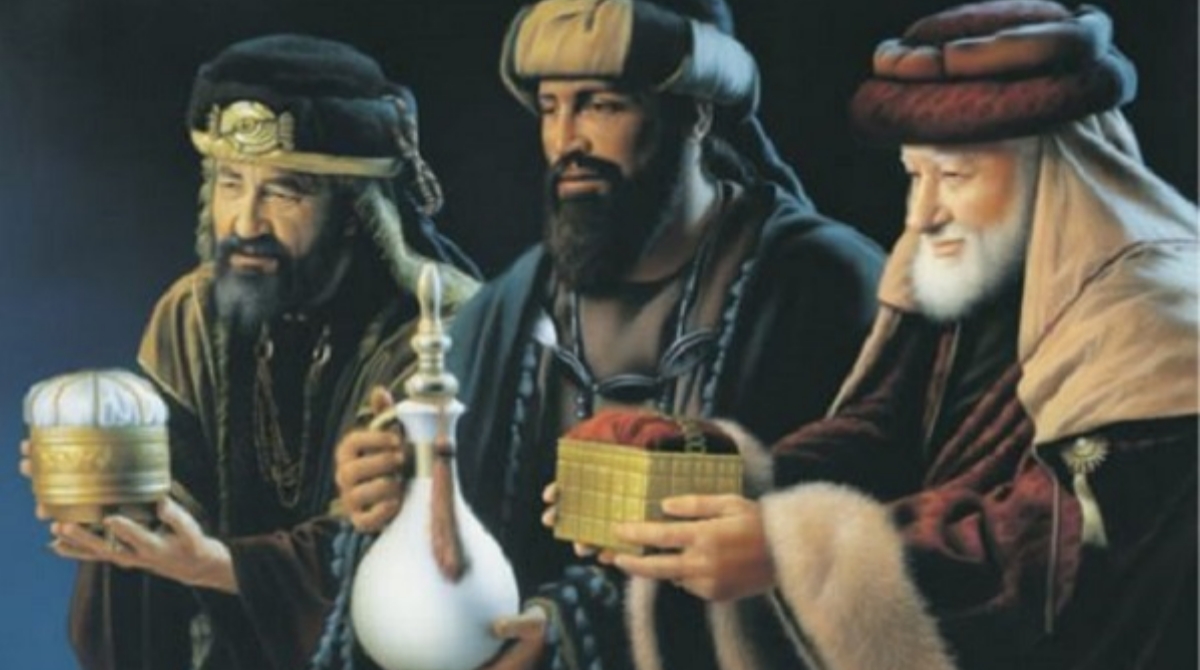Those who study the history of the Three Wise Men will quickly understand that these are primarily religious myths, sagas and legends handed down.
The Catholic Church venerates the “Three Kings” as saints and celebrates them with the feast of the Apparition of the Lord on January 6. But who were these wise men of the East?
Here’s all that need to know…
The Wise Men In The Bible
According to Matthew 2:1-12, the Magi’s a star to Bethlehem and began inquiring around about this king of the Jews they seemed confident had just been born.
It caused quite a stir, mainly with King Herod, who rounded up all the monks and intellectuals and demanded to recognize why so many people had been coming to see this mystery child.
They explained the prophecy, and Herod advised the wise men to hit him up on their way back, however they had been “warned in a dream” that he was sketch. After dropping off their gifts, they took a different route back home and out of the Good Book forever.

Who Were The Three Wise Men?
Because there’s so little information about the wise men in the Bible, people have tried to fill in as lots records as they can about these three wise men.
Their names are in no way given, however due to the fact they characteristic so closely in the nativity story that is told over and over in Christian culture, they had to name them something.
According to Western tradition, the three wise men of Persia, India, and Babylonia are referred to as Melchior, Caspar, and Balthazar, respectively.
In Syria, the wise men are named Larvandad, Hormisdas, and Gushnasaph, while some other Christian cultures named them Kagba, Badadakharida, and Badadilma.
It’s no longer clear how the Magi, who were initially referred to as Magos (a caste of monks and, yes, sensible men), grew to become kings.
They have been likely astrologers to the stars (that is, the priests), simple servants of the court other than rulers.
Between the 3rd and 8th centuries, however, new translations of the Bible imbued them with this royal designation, especially the line “May all kings fall before him”.
Thanks to this aggregate of mystique and advice of significance, the Magi have ended up saints and martyrs in some traditions.
Several churches even claimed to house their remains, however, it’s incredibly challenging to perceive the body of anyone with an unknown identity.
How Many Wise Men Were There in the Christmas Story?
The Bible in no way says how many magi there were.
There had been at least two, however, there is no indication other than that. The notion of three sensible guys probably comes from the fact that they brought three gifts.
Early church traditions clearly suggested that there have been twelve magi, however we have no idea.

What’s With Those Gifts?
We don’t even surely know that there have been three wise men.
All we know is that there were more than one, however we assume that there have been three due to the fact they brought three items that, upon nearer inspection, you’ll find unsuitable for a baby.
Biblical scholars have observed this, too, and developed various theories about what was the significance of gold, frankincense, and myrrh.
The most primary theory is that the gifts are what they are: myrrh is an anointing oil, frankincense is a perfume, and gold is gold (Everyone loves gold).
Others believe the gifts are metaphorical, e.g., gold represents “kingship,” frankincense is godly, and myrrh symbolizes death due to the fact of its use in embalming.
Another possibility is that gold represents virtue, frankincense symbolizes prayer, and myrrh is a stand-in for suffering. Still every other possibility is that it’s all a call-back to Isaiah’s prophecy that “They shall carry gold and frankincense and proclaim the reward of the Lord.”

They Didn’t Even Arrive On Christmas
If you go to see a nativity play today, you’ll see all people exhibit up simply after the birth of Jesus, however if you think about it, it’s noticeably not likely that even these who had to travel from exotic lands managed to make it before Virgin Mary could even leave the manger.
That’s due to the fact they didn’t: The wise men actually arrived 12 days after the birth of Christ. The nativity play truncates the timeline to preserve the size to a minimum, due to the fact no one wishes to watch a 12-day play.
Today, the day of the Magi’s arrival is known as Epiphany, and depending on your denomination of Christianity, you have a good time it somewhere between January 6 for Catholics and January 19 for Orthodox Christians.


